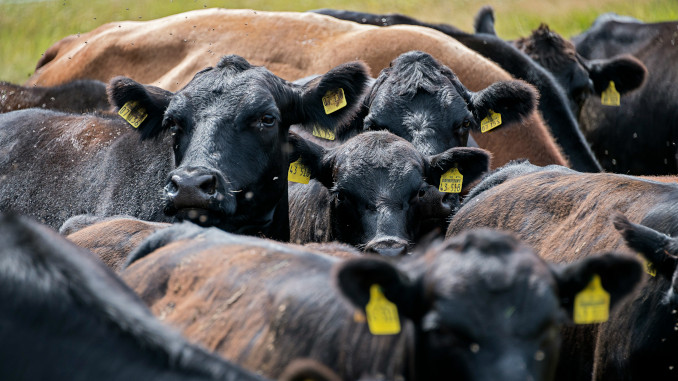
By Pete Kennedy, Esq.
Representative Harriet Hageman (R-WY) has introduced House Joint Resolution 167 (HJR 167), a measure that would block implementation of a rule issued by the USDA that would mandate electronic ID (EID) for cattle and bison 18 months of age or older in interstate commerce. The rule, which was published in the Federal Register on May 9, is scheduled to go into effect on November 5.
As Rep. Hageman says, mandatory EID is a solution in search of a problem. Since 2013, there has been an animal disease traceability framework in place that, in addition to electronic ID, also recognized visually readable tags, brands, tattoos, and breed registry certificates as official identification for interstate movement of cattle and bison. The low-tech ID system has worked well; the new rule does nothing to improve traceability or food safety but rather improves the export market for the big meat-packers at the expense of small farmers. The only other group the rule benefits is the technology companies—who stand to make millions—that produce the electronic tags, readers, and software.
The immediate effect for small farmers and ranchers will be an increase in cost and a loss of privacy with the mandatory EID requirement and the central registry it will create, detailing what the cattle farmer owns. There are also longer-term ramifications—the loss of the cattle farmer’s independent income and the verticalization of the beef industry, as has been the case with the poultry and pork industries for many years.
Once mandatory EID is implemented, the government can keep piling on expensive requirements for farmers’ cattle to be in compliance; as Congressman Thomas Massie says, if you don’t comply with all the requirements, “they’re going to stop you from selling your cattle at the point of sale. They’re going to run a wand over your animal. If the serial number doesn’t match up with a form that’s compliant, no sale and destroy the animal.” Once-independent farmers will face the choice of going out of business or becoming a contract farmer for Cargill or JBS.
Stopping mandatory electronic ID is imperative for cattle farmers and ranchers to remain independent and for consumers to continue to have the same level of access to quality beef and bison. If not stopped, this is just the first step as USDA moves toward, in its own words, “modern animal disease traceability system that tracks [all] animals from birth to slaughter.”
Action to Take:
Call and/or email your U.S. Representative asking that they cosponsor HJR 167. Calls are best. You can find your representative at https://www.congress.gov/members.
Talking Points:
- The cost of the electronic tags disproportionately burdens small- and medium-sized independent farmers and ranchers.
- USDA has provided no data showing that mandatory EID will improve traceability.
- Mandatory EID does not improve food safety. Most foodborne illnesses are caused by unsanitary conditions in slaughterhouses and processing facilities. Traceability for animals ends at the slaughterhouse door.
- The EID rule improves the export market for the big meat-packers at the expense of the small farmer and rancher.
- The effect of the rule will be to vertically integrate the beef industry, throwing independent ranchers and farmers out of business and further consolidating the industry.
Related:
